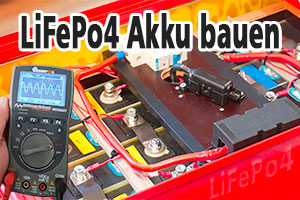
Zitat von
Lisbeth2010
Hallo, ich habe eine Lösung für den Nibo (1), aber sie sollte relativ einfach auf den Nibo 2 adaptiert werden können. Sie benutzt den Timer2, der HOFFENTLICH (s. mangelhafte Dokumentation!!)verwendet werden kann. Wie kann man hier Code posten?
Lisbeth
Code:
/* Linie einfachst. Erstmal Bodensensoren */
#include <avr/interrupt.h>
#include <nibo/niboconfig.h>
#include <nibo/iodefs.h>
#include <nibo/bot.h>
#include <nibo/i2cmaster.h>
#include <nibo/leds.h>
#include <nibo/delay.h>
#include <nibo/motco.h>
#include <nibo/irco.h>
#include <nibo/floor.h>
#include <nibo/adc.h>
#include "utiliw.h"
#define WHILE_1_TIME_GRID 20
uint8_t counter_1ms;
uint8_t speed_left = 40; // Ticks/Sekunde
uint8_t speed_right = 40; // Ticks/Sekunde
// ------------------------------------------------------------
// ---------- init timer2 -------------------------------------
// ------------------------------------------------------------
void init_timer2(void) {
TCCR2 = 0x00; // normal port operation
TCNT2 = 0x83; // set count value (131)
}
// ------------------------------------------------------------
// ---------- start timer2 ------------------------------------
// ------------------------------------------------------------
void start_timer2(void) {
cli(); // disable global interrupts
counter_1ms = 0;
TCCR2 |= 0x05; // CS02 = 1; CS01 = 0; CS00 = 1 -> clk/128
TIMSK |= (1<<TOIE2); //0x01; // enable timer overflow interrupt
sei(); // enable global interrupts
}
// ------------------------------------------------------------
// ---------- stop timer2 -------------------------------------
// ------------------------------------------------------------
void stop_timer2(void) {
cli(); // disable global interrupts
TCCR2 &= ~0x05; // stop timer
TIMSK &= ~(1<<TOIE2);//0x01; // disable timer overflow interrupt
sei(); // enable global interrupts
}
// ------------------------------------------------------------
// ---------- timer2 ISR --------------------------------------
// ------------------------------------------------------------
ISR(TIMER2_OVF_vect) { // timer2 overflow
// reload counter value high byte; 0x83 corresponds to 1ms
// clk/128 entspricht 125 kHz entspricht 8 us
TCNT2 = 0x83; // 131 bis 256 also 125 mal 8 us
counter_1ms++;
if (counter_1ms >= WHILE_1_TIME_GRID) {
stop_timer2(); // Zeitdauer unbekannt, deshalb stoppen
// Bodensensoren messen
floor_measure_iw();
//zahlausgabe(floor_mw[2]); // da kein Display!
if (floor_mw[2] < 32) { // schwarz = 0, weiß = 1023
motco_stop();
motco_update();
leds_set_status(LEDS_RED,0);
} else {
leds_set_status(LEDS_GREEN,0);
// delta_motco ms nach vorn fahren
motco_setSpeed(speed_left,speed_right);
motco_update(); // jetzt fährt er erst los!
} // end if floor
counter_1ms = 0;
start_timer2(); // alles abgearbeitet
} // end if counter
} // end ISR
/* die main */
int main() {
sei();
bot_init();
i2c_init();
leds_init();
floor_init();
init_timer2();
delay(2000); // damit er nicht gleich losrast!
motco_setSpeedParameters(5,4,6); // Empfehlung vom "Chef"
start_timer2();
while (1) {
// tu was
delay(10000);
}
return 0;
}







 Zitieren
Zitieren


Lesezeichen